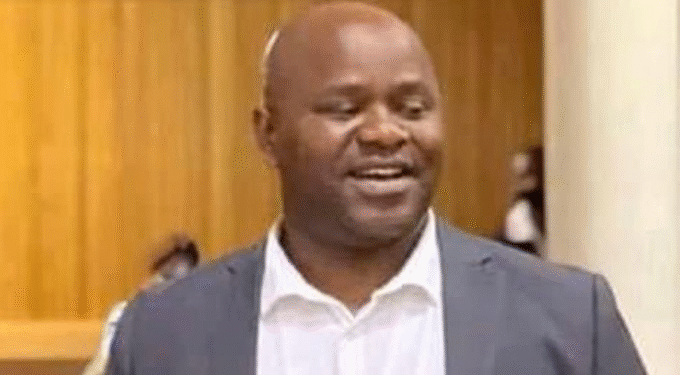A former opposition lawmaker in Eswatini, Mthandeni Dube, has been released from prison after receiving a royal pardon, ending more than four years behind bars over his role in the 2021 pro-democracy protests that shook Africa’s last absolute monarchy.
Dube was freed on Tuesday from the Matsapha Correctional Centre, a high-security facility located about 30 kilometres from the capital, Mbabane. His release came alongside 11 other inmates — nine men and two women — who were also pardoned.
“I am happy that the King has released me,” Dube said during a brief ceremony marking his release.

The inmates, dressed in orange prison uniforms, were informed that they would remain under the supervision of correctional authorities and barred from making public statements or participating in future protests.
“Only today can they entertain the media, and from tomorrow, none of them is expected to meet journalists,” Correctional Commissioner General Lomakhosini Dlamini announced.
Dube was arrested in July 2021 alongside fellow MP Mduduzi Bacede Mabuza for allegedly inciting unrest during protests demanding democratic reforms. The demonstrations were violently suppressed by security forces, leaving dozens dead and hundreds injured.
Mabuza, who was sentenced to 25 years in prison, did not apply for a royal pardon, according to correctional services spokesperson Baphelele Kunene.
Human Rights Watch (HRW) recently condemned the lack of accountability for the 2021 killings, noting that security forces had fired live ammunition at protesters and bystanders.
“The victims and survivors are still living with the consequences of the brutality they suffered, without any remedies for their rights violations,” said Nomathamsanqa Masiko-Mpaka, HRW’s Africa researcher.
Eswatini, formerly known as Swaziland, remains Africa’s last absolute monarchy, where political parties are banned.
King Mswati III, who has ruled since 1986, wields sweeping powers — including the authority to appoint the prime minister and cabinet, veto legislation, and remain constitutionally above the law.
Despite his lavish lifestyle, more than half of Eswatini’s 1.2 million citizens live in poverty, underscoring the deep inequality in the small southern African nation.









